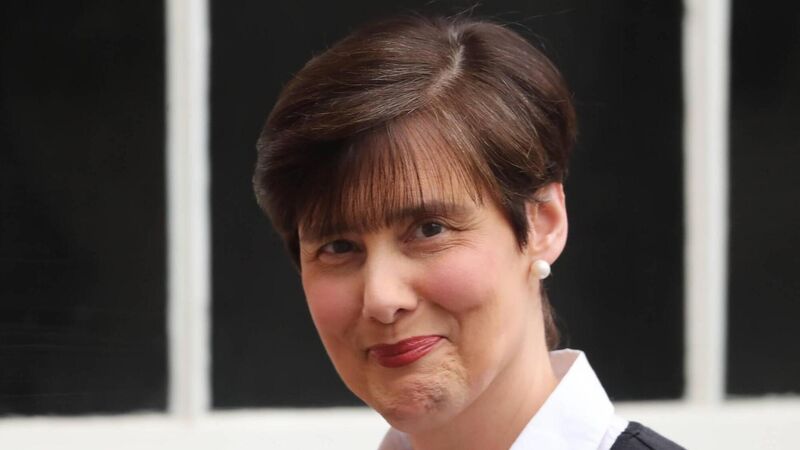Norma Foley: Colleges can charge students full €3k in fees

Third-level colleges will be able to charge the full €3,000 in fees to their students even if they severely restrict access to campus and force them to stay at home, Education Minister Norma Foley has said.
Ms Foley has been called on by the Opposition to make clear that where so-called 'blended learning' circumstances will operate that a reduced fee would apply.
People Before Profit TD Richard Boyd Barrett called on Ms Foley to say if it will be ensured that those going to third-level education in September in blended learning settings will not have to pay the current level of registration fees.
However, Ms Foley has made clear the colleges will have the freedom to charge what they want up to the €3,000 and, with the entire sector in financial turmoil, there is no chance of reductions applying.
Some estimate the sector could be facing a financial hole of up to €500m because of Covid-19.
“Any determination as to the level of fees to be charged is a matter for each institution in accordance with its own particular operational conditions and circumstances in ensuring education provision for students through this pandemic,” said Ms Foley.
At present, under the free fees scheme, the exchequer provides funding toward the tuition fee costs of eligible undergraduate students, with students paying the student contribution.
Since the introduction of the free fees system in the 1990s, the colleges were allowed to continue to charge a “registration” or student contribution, which is currently €3,000. The last change was in the 2014/2015 academic year.
Read More
Ms Foley has said planning for models of blended learning in colleges is taking place against a backdrop of an evolving public health environment and will continue to be monitored and adapted as required to ensure the health and safety of all students and staff.
“The balance between face-to-face and online will vary across programmes and will depend on factors such as the disciplinary teaching and learning needs and the numbers of students registered on individual programmes as well as the practical/theoretical balance of learning outcomes in the programme,” she said.
Mr Boyd Barrett and other Opposition TDs have called for the fees to be reduced in circumstances whereby students are forced to remain at home.
The Union of Students in Ireland (USI) has also called for a reduction in fees as a result of academic changes in 2020/2021, and for a wider debate around third-level fees and funding.
At present, the Exchequer pays all, or part of, the contribution on behalf of almost 50% of students eligible for free fees via the student support grant.
“Where students do not meet the eligibility criteria of the free fees initiative, for example, full-time undergraduate students who do not qualify for the free tuition fees, part-time undergraduates, or any postgraduate students, it is a matter for the higher education institution, as an autonomous body, to determine which fee rate is applicable for students,” said Ms Foley.





